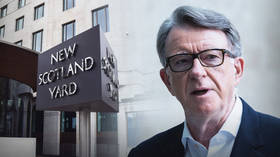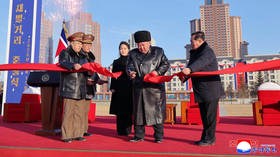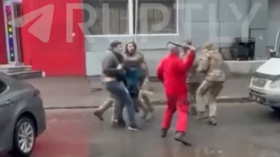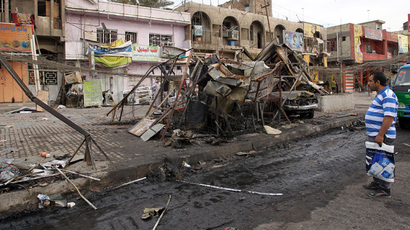Violence across Iraq claims 54 lives
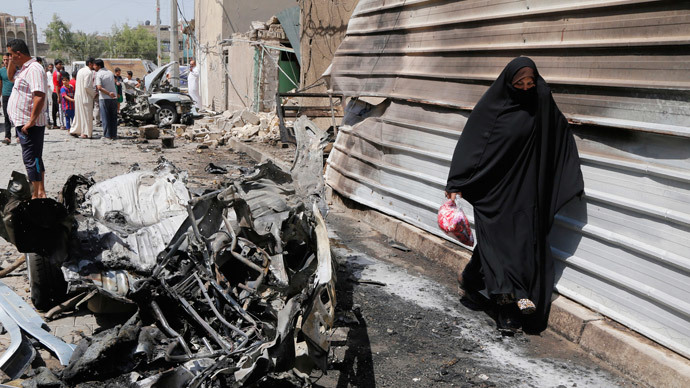
Violence across Iraq – including car bombings, suicide attacks, and assassinations – killed at least 54 people on Wednesday.
The deaths focused mainly on Shiite sections of Baghdad and the tense northern city of Mosul, largely controlled by former Al-Qaeda affiliate Islamic State of Iraq and the Levant (ISIL).
In Baghdad’s Sadr City, a minivan joined a line of taxis before the driver abandoned the vehicle minutes before it exploded, according to police. Four were killed and 14 were wounded, police and medical sources said.
Another 22 died in attacks around Baghdad, including 11 people in a suicide car bombing at a checkpoint near the religious neighborhood of Kadhimiyah, authorities and medical staff said, as reported by Reuters.
A car detonation killed 19 people – 12 military personnel and seven civilians – at a checkpoint entering Mosul, according to a security official.
Another car bomb exploded outside the headquarters of Iraq’s federal police in Mosul, killing two soldiers and one policeman, the official said.
A third attack in Mosul left two policemen dead, shot by unknown gunmen, security sources said.
In Tuz Khurmatu in northern Iraq, four family members were killed in a bombing in front of the homes of 11 Shiite Turkmen, according to security sources.
Iraq held national elections last month, and politicians are busy assembling the next government. Preliminary results of the election give Prime Minister Nouri Al-Maliki at least 94 parliament seats, making him the frontrunner to form the government. Negotiations are expected to be contentious amid a backdrop of ongoing, intense violence in the fractured country.
Relations between Sunnis and Shiites in Iraq have increasingly soured, in part due to the conflict in neighboring Syria, which has attracted fighters from both sides of the sectarian divide to engage in the broader regional proxy war. This, coupled with internal tensions between the two dominant denominations of Islam, has led to the deadliest wave of violence to strike Iraq in six years.
Iraq has been torn by a new wave of violent attacks since April 2013, with the number of dead jumping to its highest level since the worst of the country's sectarian bloodshed in 2006-2008.
Over 8,800 people were killed in 2013 and 1,666 people died in the first three months of 2014 due to terrorist attacks or other acts of violence, according to UN statistics. Last month saw over 1,000 fatalities, 750 of which occurred as a result of terrorist attacks.



